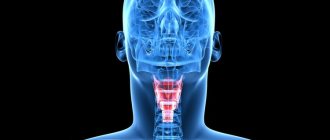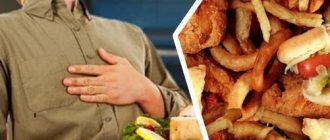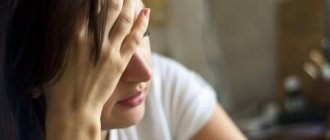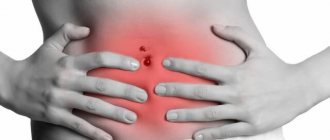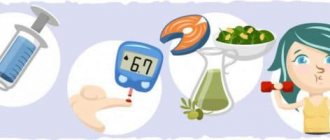Hiccups are an unpleasant process. How inconvenient it is when it comes at the most inopportune moment. Many people have probably noticed more than once that this phenomenon occurs during or after eating.
Hiccups are a contraction of the diaphragm. It occurs due to irritation of the nerve endings or walls of the esophagus.
It is believed that if you drink water in small sips or hold your breath, it will go away. It's funny, but it really helps. And many people use these methods.
But what to do if the hiccups do not intend to go away? Why do hiccups occur in adults after eating?
Causes of hiccups after eating
There are a lot of reasons. Hiccups after eating are unpleasant, but not fatal. This process in itself is not scary.
Although in some cases this is a really serious symptom. Conventionally, the causes are divided into physiological and pathological.
Physiological causes of hiccups after eating:
- Rushing eating can irritate the vagus nerve and cause injury to the esophagus. You can't eat fast. Only leisurely absorption and thorough chewing.
- We all love to eat tasty and hearty food. Especially during the holidays, you can really fill your stomach. A full stomach prevents the diaphragm from lowering during inhalation, which leads to a phenomenon called hiccups.
- Many have noticed that hiccups begin during excessive drinking. They start making fun at the table, saying that this is condition. So here it is. In reality, hiccups occur as a result of dysfunction of the nervous system. Alcohol causes hot spots in the brain.
- Eating is an important process. There are certain rules that need to be followed. It’s not for nothing that parents tell their children that they shouldn’t spin, laugh, play or talk at the table. When many people say these rules, they mean that it is unethical. In fact, this may cause some problems. Food can get stuck in the respiratory tract and the person will suffocate. This is in the most severe case. But the likelihood of hiccups occurring after eating is more likely.
- Hypothermia also threatens the appearance of hiccups. A change in body temperature can cause a reflex muscle spasm.
- Domestic conflicts.
- Drinking carbonated drinks.
In practice, cases have been observed where some diseases have a symptom such as hiccups.
Pathological reasons:
- Myocardial infarction.
- Pneumonia.
- Traumatic brain injuries.
- Encephalitis.
- Nervous shocks and worries.
- Surgical interventions in the spine or gastrointestinal tract.
- Diabetes.
- Meningitis.
- Uremia.
- Gastritis.
- Ulcer.
- Cholecystitis.
- Diseases associated with the central nervous system.
- Tumor-like neoplasms in the gastrointestinal tract or lungs.
- Intoxication.
Hiccups after eating food are not dangerous. And indeed, it will not harm, if it occurs once and rarely.
When bouts of hiccups become permanent and prolonged, you should think about it, be wary and seek advice. It is better to once again protect yourself and identify the pathology at the initial stage.
Hiccups after eating - causes, treatment methods and prevention
Hiccups always begin suddenly and cause quite unpleasant sensations. Being a breathing reflex, it is, nevertheless, directly related to the manner of eating. Understanding the causes and mechanisms of hiccups before or after eating will help you avoid this annoying symptom or stop its manifestation as soon as possible.
About the role of the diaphragm
The diaphragm is a muscular septum that separates the chest cavity (mediastinum) from the peritoneum. Along with the heart muscle, the diaphragm is a vital part of the human muscular system.
It is the “foundation” for the chest organs, fixing the position of the heart sac, lungs, and together with the intercostal muscles regulates the volume of inhaled air and breathing frequency.
The diaphragm is the main singing instrument.
Disturbances in the functioning of the central nervous system—damage to the nerves penetrating the thickness of the diaphragm, or their centers in the cervical spinal cord—lead to disturbances in its function. Sometimes the diaphragm takes an extreme upper position that does not correspond to the norm, leading to a decrease in the internal volume of the chest and spasm - the so-called high position of the diaphragm.
How we breathe
The coordinated functioning of the respiratory organs is ensured by the respiratory center of the central nervous system through unconditioned reflexes (regardless of the will of the person). It regulates the frequency of contractions of the diaphragm, respiratory muscles, and muscle tone of the vessels of the respiratory organs. In other words, the respiratory center acts as a commander.
External respiration is the exchange of gases between outside air and blood, simply put, the process of enriching the blood with oxygen.
Changes in the composition of blood or air entering the lungs are signals for correcting the operation of the diaphragm according to the direct connection principle.
An increase in the amount of carbon dioxide in the blood reflexively turns on the mechanism of enhanced ventilation of the lungs (turns on the diaphragm “at full power”).
Malfunctions in the functioning of the respiratory center naturally lead to dysfunction of the diaphragm: the frequency, depth of breathing, the degree of saturation of the blood with oxygen and metabolic products change.
How we hiccup
Hiccups are simultaneous spasms of the diaphragm and intercostal muscles, causing a sharp reflex filling of the lungs with air (imitation of inhalation). At the same time, the airways are blocked by the epiglottis (a special valve made of cartilaginous tissue), which leads to a sharp closure of the gap and the appearance of a strangled “chuckling” sound.
Additional Information! A closed epiglottis prevents food from entering the airways when swallowing.
Prolonged hiccups are a disorder of external respiration, a sequence of periodic short-term spasms (twitchings) not directly related to the respiratory act. Such seizures are called clonic. The diaphragm “freezes” in this mode of operation, and the filling of the lungs with air occurs abruptly.
Important! Hiccups, regardless of food intake, can become an involuntary physiological reaction of the body to a lack of oxygen in a smoky room.
As a rule, you have to get rid of hiccups after eating using simple techniques, but sometimes it stops as suddenly as it appeared.
What causes hiccups
The causes of spastic contractions of the diaphragm (hiccups) are:
- neurological (arising in the central nervous system) pathologies;
- violations of the body's thermoregulation (hypothermia, fever);
- metabolic disorders (acute poisoning, extreme exhaustion);
- increased intra-abdominal pressure;
- disorders of the gastrointestinal tract.
Separately, it is worth mentioning the serious diseases associated with metabolic disorders that cause toxic hiccups:
- postoperative complications (consequences of anesthesia);
- diabetes;
- intoxication in the complex course of infectious diseases;
- serious disturbances of the urinary system;
- severe liver failure.
Neurological causes of prolonged hiccups
Prolonged hiccups not associated with food intake (for several days) can be a symptom of serious neurological disorders.
The respiratory center is connected to the diaphragm through the vagus (phrenic) nerve, which is part of the central nervous system.
Damage to the phrenic nerve and dysfunction of the respiratory center are severe pathologies that cause involuntary contractions of the diaphragm.
The most common causes of pathologies of the central nervous system and damage to the respiratory center are disturbances in the blood supply to the cervical spine and (or) brain:
- sclerosis or blockage of blood vessels;
- hemorrhages (hemorrhagic stroke);
- compression of blood vessels by a tumor;
- excessive bleeding not related to the condition of the blood vessels, but leading to a decrease in the speed of blood flow (in case of serious injuries).
Many days of debilitating hiccups can be a symptom of encephalitis, meningitis, or concussion. Due to its proximity to the diaphragm, heart disease and pathologies of nearby large vessels affect its function. Hiccups can be caused by a stroke, myocardial infarction, or thoracic aortic aneurysm.
Causes of increased intra-abdominal pressure
Interference with the lowering of the diaphragm and the prerequisites for the occurrence of hiccups are created by:
- prolonged strong laughter;
- overfilling of the stomach with food and (or) gases, a complicated option - obstruction of the stomach or intestines;
- pregnancy in the last trimester;
- accumulation of fluid in the abdominal cavity (ascites);
- tumors in the abdominal cavity, pelvic region.
The connection between hiccups and the functioning of the gastrointestinal tract
Thanks to wave-like rhythmic contractions of the esophageal muscles, food moves smoothly into the stomach. The vagus nerve passes in close proximity to the esophageal opening of the diaphragm, so disturbances in the motility of the esophagus and stomach can cause irritation of the nerve endings and hiccups after eating.
Prolonged hiccups occur when nerve fibers are irritated from the inflamed peritoneum and liver and can be a symptom of gastric and duodenal ulcers, cholecystitis, acute gastritis, and pancreatitis.
Often, hiccups after eating appear due to irritation of the respiratory tract with the acidic contents of the stomach, with inflammatory processes in the respiratory tract: tonsillitis, laryngitis, pneumonia, severe cough.
Drug treatment for hiccups
The drug treatment regimen for prolonged hiccups depends on the cause that caused it. Neurological reasons not related to surgery suggest the prescription of antipsychotics and treatment of the underlying disease.
Attention! When trying to get rid of prolonged hiccups, do not self-medicate; you should remember that the heart is also a muscular organ.
In some cases, drugs are used to relieve muscle spasms of various etiologies - muscle relaxants.
Alarm calls
When hiccups become prolonged during or after meals, you need to find time to visit a doctor and determine the cause of the reflex. Hiccups as a symptom may go away, but the disease that caused it will take on more dangerous, life-threatening forms. The following signs accompanying hiccups require special attention:
- profuse drooling along with many days of hiccups is a manifestation of serious damage to the spinal cord or brain;
- headaches combined with hiccups, increasing weakness, pain in the cervical spine are symptoms of osteochondrosis;
- the combination of hiccups with cough, accompanied by a dull pain in the side and back, suggests pneumonia (pneumonia, pleurisy).
How to get rid of hiccups after eating
Measures to combat an attack are aimed at relaxing the diaphragmatic muscle or fixing the diaphragm and epiglottis in a certain position, choose any:
- slow forward bends;
- holding your breath;
- drinking in small sips;
- deep breath and a series of small exhalations.
Connecting the muscles of the shoulder girdle helps restore breathing and “reboot” the diaphragm and intercostal muscles. When the muscles of the shoulder girdle are tensed (fixed in a certain position), a reflex relaxation of the diaphragm occurs, interrupting a series of pathological spasms. You can use the muscles of the shoulder girdle by leaning on your arms, placing them behind your back, or raising your arms.
The so-called “ballerina method” is based on this principle: with your hands behind your back, you should bend over and slowly drink water from a glass with outside help.
Prevention
Overeating, eating dry, eating in an uncomfortable position, lying down, in a hurry, in combination with lively conversations and laughter lead to swallowing air, disrupting the periodicity of contractions of the esophagus, activation of the vagus nerve, and spasms of the diaphragm. When the cause of the hiccups is eliminated (by belching or displacing air with water), the reflex stops.
An attack can be triggered by a sharp change in temperature when eating: a glass of hot drink after a cold meal or vice versa. You should not abuse carbonated drinks.
Mistakes when dealing with hiccups
In no case should you frighten a person who hiccups: at best, such a measure will not give any result, and at worst, it can cause clonic spasms of the laryngeal muscles, stuttering and even suffocation.
Please note : the hiccup reflex and stuttering have the same nature, and the terms themselves are the same root words.
A sharp reflex inhalation when frightened, on the contrary, can provoke an attack of hiccups.
Important! Do not put small objects into a glass of water that a person drinks while fighting hiccups (toothpicks, rings, small pebbles). Their entry into the respiratory tract can lead to unpredictable consequences.
Most people think that hiccups after eating are funny, but they are a serious neurological problem and can lead to nervous disorders. In some cases, hiccups become a life-threatening problem: take them seriously.
Source: https://izjoga.info/ikota/do-i-posle-edy-prichiny.html
Why do hiccups occur while eating? Process description
The main reasons are already known. In most cases, this is a simple irritation of nerve endings. Sometimes the source is irritation of the walls of the esophagus.
Usually it goes away within 1-5 minutes. If you take known measures, it will quickly stop.
Why do hiccups occur after eating in adults? It occurs when the muscles of the diaphragm contract.
With healthy development, this organ works at its normal pace. Any reason can happen that causes a failure.
It is considered normal when, when inhaling, it descends and takes in air, and when exhaling, it rises and releases carbon dioxide. If something disturbs the tempo, the diaphragm begins to jerk up and down and the operation is disrupted.
Everyone knows what sound hiccups make. This happens due to the fact that air enters in different quantities. Sudden swallowing of air affects the vocal cords.
The connection between hiccups and the functioning of the gastrointestinal tract
Thanks to wave-like rhythmic contractions of the esophageal muscles, food moves smoothly into the stomach. The vagus nerve passes in close proximity to the esophageal opening of the diaphragm, so disturbances in the motility of the esophagus and stomach can cause irritation of the nerve endings and hiccups after eating.
Prolonged hiccups occur when nerve fibers are irritated from the inflamed peritoneum and liver and can be a symptom of gastric and duodenal ulcers, cholecystitis, acute gastritis, and pancreatitis.
Often, hiccups after eating appear due to irritation of the respiratory tract with the acidic contents of the stomach, with inflammatory processes in the respiratory tract: tonsillitis, laryngitis, pneumonia, severe cough.
Hiccups after eating in a child
Such a phenomenon is always influenced by some irritant. Failure of the respiratory system cannot occur on its own.
There is always an explanation for this. It’s just that not everyone wants to know about such small details of their body.
Perhaps mothers will wonder why their child hiccups. Especially if it's a baby. In many cases, the reasons are the same as in adults.
Most often they are physiological and do not carry much seriousness.
So, the reasons for hiccups after eating in children:
- Binge eating. From a very young age, pediatricians recommend following a feeding schedule. Many mothers react to a baby’s cry by covering his mouth with her breast or a bottle of formula. It is not right. It is advisable to initially accustom the baby to eating on time. Hiccups after eating in this case may indicate that the child is eating too much.
- A sharp drop in body temperature. If an adult is warm and constantly on the move, this does not mean that the baby feels the same. This is especially true for newborn children. They mostly lie down and do not show themselves physically in any way. In addition, their skin is more sensitive to temperature changes. If your child is hiccupping, he may just be cold. He needs to be given some warm boiled water to drink and, of course, dressed warmly.
- Nervous state or stressful situation. Yes. The child may also experience stress. He reacts to this by crying. He may also simply be scared. There is no point in waiting for the child to calm down on his own. A mother should know how to calm her baby. The game is a good distraction.
- Even excessive emotionality or laughter can cause hiccups. In this case, help is required. You need to try to relieve the spasm of the diaphragm itself. First, you should calm the child down, and then begin a simple exercise. As you inhale, you should stretch your hands to the top, and as you exhale, lower them. If the child is older, you can ask him to take a deep breath and hold it in.
- Thirst. Hiccups are sometimes a consequence of normal thirst. To correct this, the child must receive the necessary fluid. You should take several small, leisurely sips of warm water.
- Parasites. They are also a common cause of hiccups. You need to contact a specialist with this problem, and he will prescribe an adequate and suitable solution.
- Wrong food. It is advisable to limit your child's intake of junk food. This may include carbonated drinks. You should also avoid snacks and dry foods: chips, cookies, sandwiches. Children need to drink enough liquid with their meals.
- During the growth and development of a child, his digestive system is still being formed. Due to the physiological characteristics of the body, hiccups may occur after eating food.
To get rid of hiccups after or during meals, it is enough to follow the regime and diet.
If the child is an adult, then you need to try to explain to him how to behave at the table. By eliminating some everyday situations, you can bypass the unpleasant symptom.
Just in case, at your next pediatrician appointment you should express your concerns and undergo diagnostics. The child cannot always correctly explain what is happening to him and there is a possibility of developing pathology.
Etiology
The causes of hiccups after eating are both physiological and pathological.
The first group of etiological factors includes:
- fast food on the go;
- binge eating;
- habit of drinking carbonated drinks with food;
- hypothermia;
- excessive consumption of alcoholic beverages;
- stress, nervous shock;
- previous operations on the spine or gastrointestinal tract.
As for pathological causes, the following etiological factors should be noted:
- cholecystitis;
- gastritis;
- ulcerative lesions of the stomach;
- benign or malignant formations in the gastrointestinal tract;
- intoxication of the body due to poisoning by poisons, chemicals, heavy metals and other toxins;
- encephalitis;
- traumatic brain injury;
- myocardial infarction;
- meningitis;
- uremia;
- pathological processes that affect the central nervous system.
If hiccups sometimes appear after eating, are not long-lasting in nature and do not cause inconvenience in the form of a general deterioration in well-being, then they are not a sign of pathology. But a consultation with a gastroenterologist will not be superfluous. Especially when we talk about those cases when a child hiccups after eating.
In the latter case, etiological factors such as:
- binge eating;
- a sharp drop in body temperature;
- excessive activity;
- thirst;
- poor nutrition;
- stressful situations;
- natural physiological processes in a child’s body.
In newborns, hiccups after feeding may be a consequence of poor nutrition of the mother.
Diagnostics
If hiccups persist, you should consult a specialist. To rule out possible diseases, the doctor will most likely conduct a diagnosis.
Typically it includes the following steps:
- Examination of the patient. Most likely, he will be interested in the opinion of a person suffering from hiccups. It is necessary to find out when the problem started and how often it returns.
- It is imperative to identify existing diseases. It is possible that they were the cause of this pathology. An important factor will be the presence of diabetes, gastrointestinal diseases, etc.
- It is likely that you will need to undergo a number of general tests. A therapist or pediatrician can refer you to other specialized specialists. For example, gastroenterologist, psychiatrist, surgeon, neurologist.
Treatment of hiccups after eating in adults
In most cases, the occurrence of hiccups after eating is influenced by ordinary physiological factors. To avoid this process, it is enough to exclude them.
Many doctors will advise you to reconsider your diet. It will also be right to start following the regime. You cannot eat dry food, use snacks or eat on the go.
Hiccups are not a specific indicator of any disease. Only in some cases, it can be caused by pathologies. But this is rather an exception and there are certainly other main signs besides hiccups.
There are two ways to treat hiccups after eating in adults: medical and folk. Most often, it is the second method that is suitable.
More than one generation has used these methods on themselves. They help get rid of hiccups within the first minutes.
So, traditional medicine advises several methods:
- Of course, at the very beginning you should just drink a small amount of water. If this does not help, you need to restore the diaphragm. Inhalations and exhalations should not be confused. The person should inhale more air and hold his breath for as long as possible. Most likely, these methods will be sufficient. But, if not, then you need to use others.
- It sounds very unexpected, but sour fruits will help you cope with hiccups: lemon, grapefruit, etc. A small piece is enough. Just put it in your mouth, bite or suck.
- You can get rid of hiccups using another effective, but less pleasant method. You need to press with a clean spoon or your fingers on the bottom of the tongue. This will cause the necessary gag reflex in this case. What is needed is the reflex itself, not vomiting.
If these methods do not help, and the hiccups return with the same frequency, then consultation with a specialist is necessary. If pathological factors are detected, drug therapeutic treatment is prescribed.
Treatment will depend on the disease. In this case, you will have to remove not only the symptom, but also its root cause.
The first place among the pathological causes still remains: stretching of the stomach walls or oversaturation of the blood with carbon dioxide.
This means that the solution to the problem is to remove these gases. It will help: Cerucal, Motilium, mint drops, Metoclopramide, Domperidone, Domrid.
You may also need medications to help your muscles relax. These are Baclosan, Lioresal, Baclofen.
How to get rid of hiccups after eating
Measures to combat an attack are aimed at relaxing the diaphragmatic muscle or fixing the diaphragm and epiglottis in a certain position, choose any:
- slow forward bends;
- holding your breath;
- drinking in small sips;
- deep breath and a series of small exhalations.
Connecting the muscles of the shoulder girdle helps restore breathing and “reboot” the diaphragm and intercostal muscles.
When the muscles of the shoulder girdle are tensed (fixed in a certain position), a reflex relaxation of the diaphragm occurs, interrupting a series of pathological spasms. You can use the muscles of the shoulder girdle by leaning on your arms, placing them behind your back, or raising your arms. The so-called “ballerina method” is based on this principle: with your hands behind your back, you should bend over and slowly drink water from a glass with outside help.
Prevention of hiccups after eating in adults
To prevent hiccups from bothering you, it is enough to remove household causes. By changing your behavior at the table, you can forget about it forever. List of things to stick to:
- Can't be transferred. You should limit your portions and not deviate from them. It is better to eat often, but in small portions. Approximate frequency: 2-3 hours.
- You should behave correctly and calmly at the table. You should not be distracted, talk or rush. You need to chew incoming food thoroughly.
- It is better to avoid snacking and consume dry foods.
- The mood is also important when eating.
- If a person notices that such a phenomenon tends to appear against the background of experiences and emotional upheavals, then it is worth minimizing this possibility. If you have hiccups, it is recommended to calm down. If necessary, take appropriate medications. For example, valerian tincture.
- It is not recommended to scare with hiccups. This will only make things worse.
- We need to take more walks in the fresh air.
- Avoid temperature changes.

